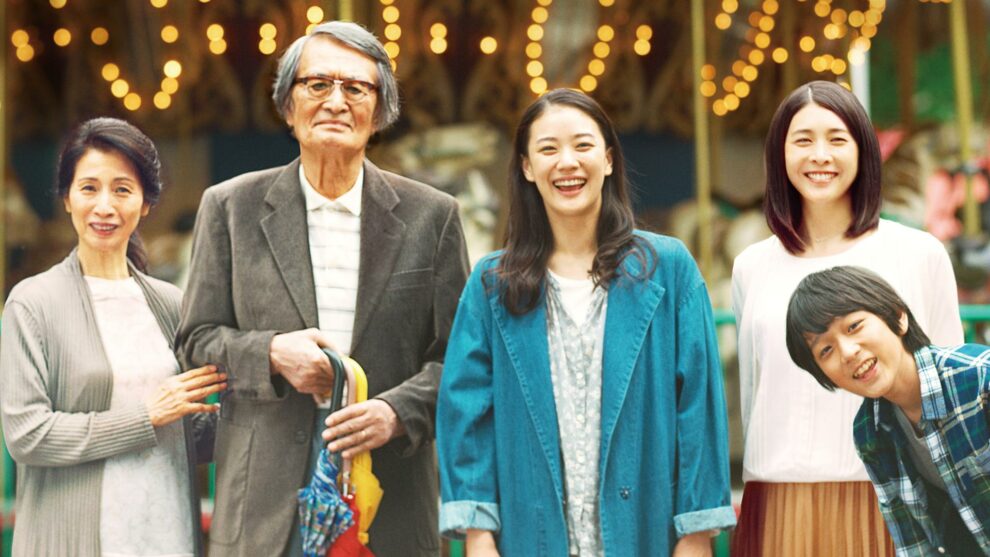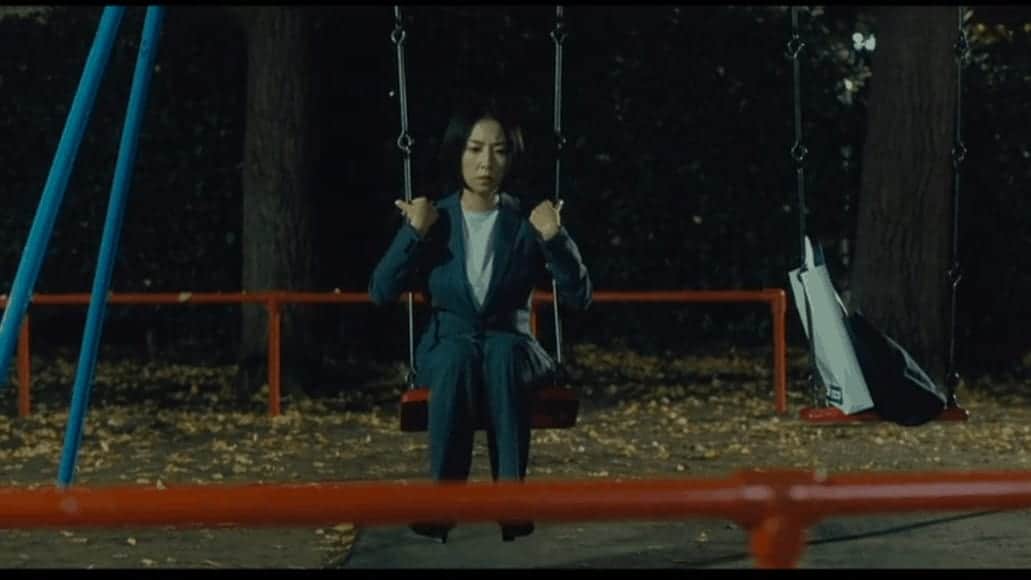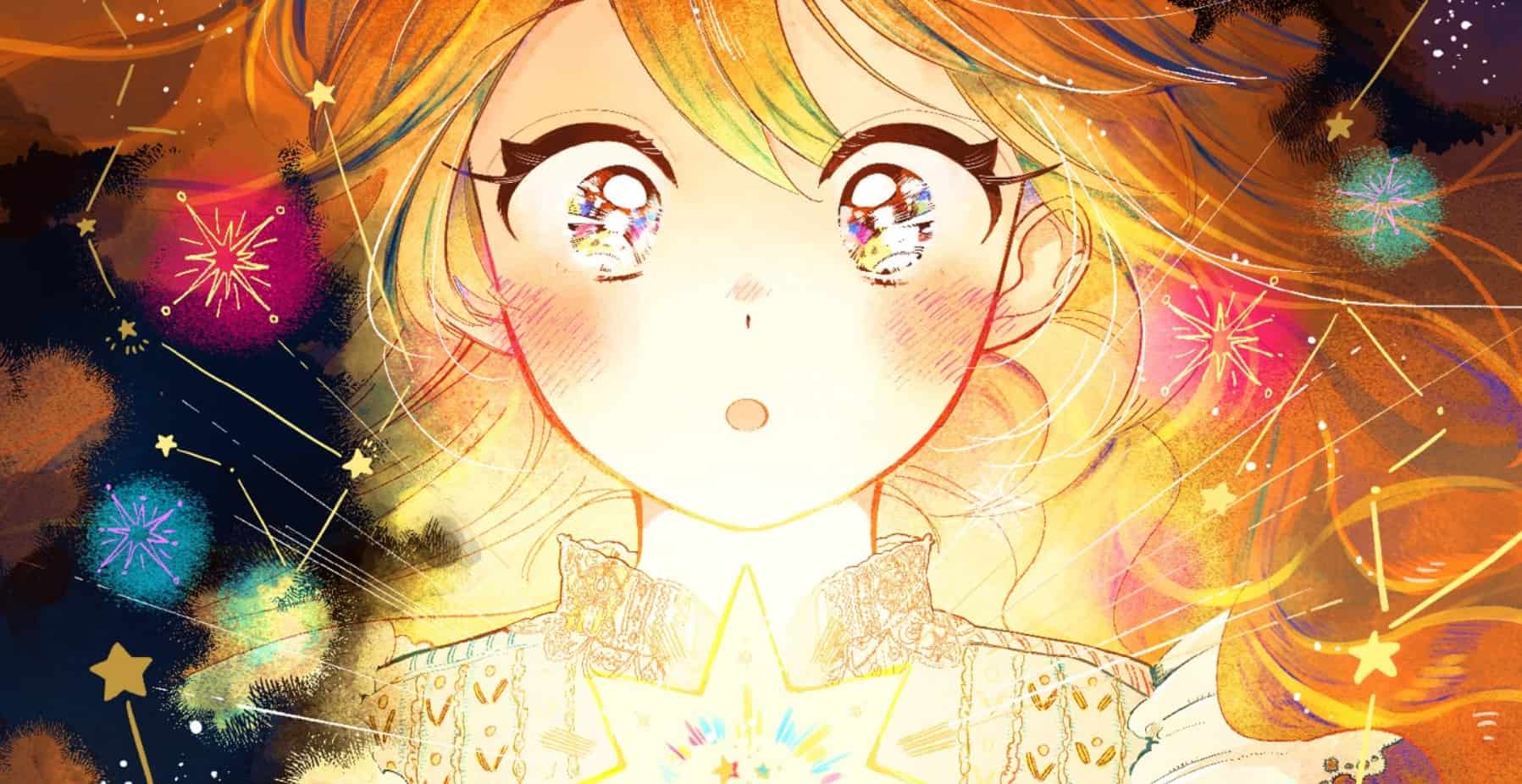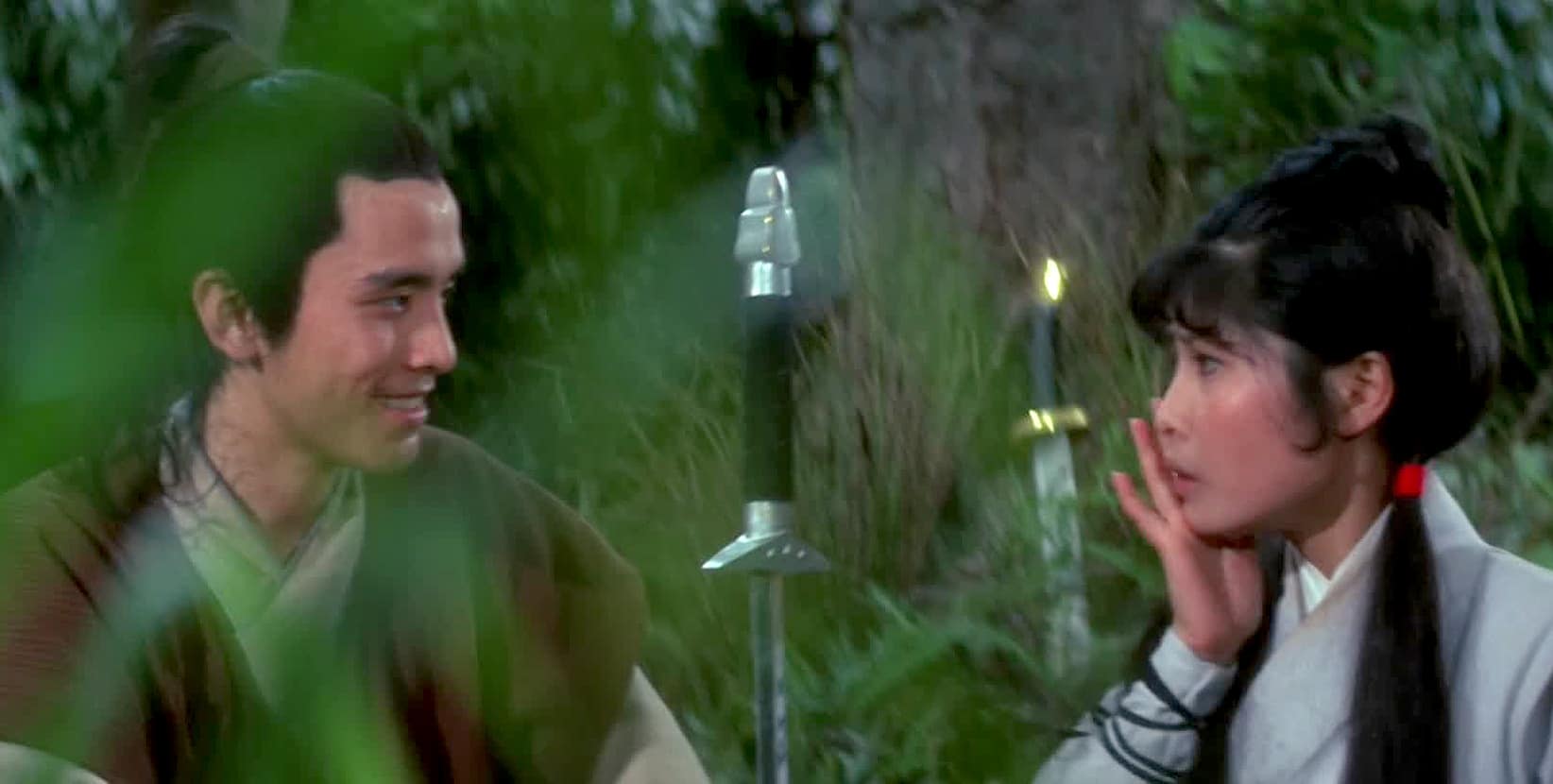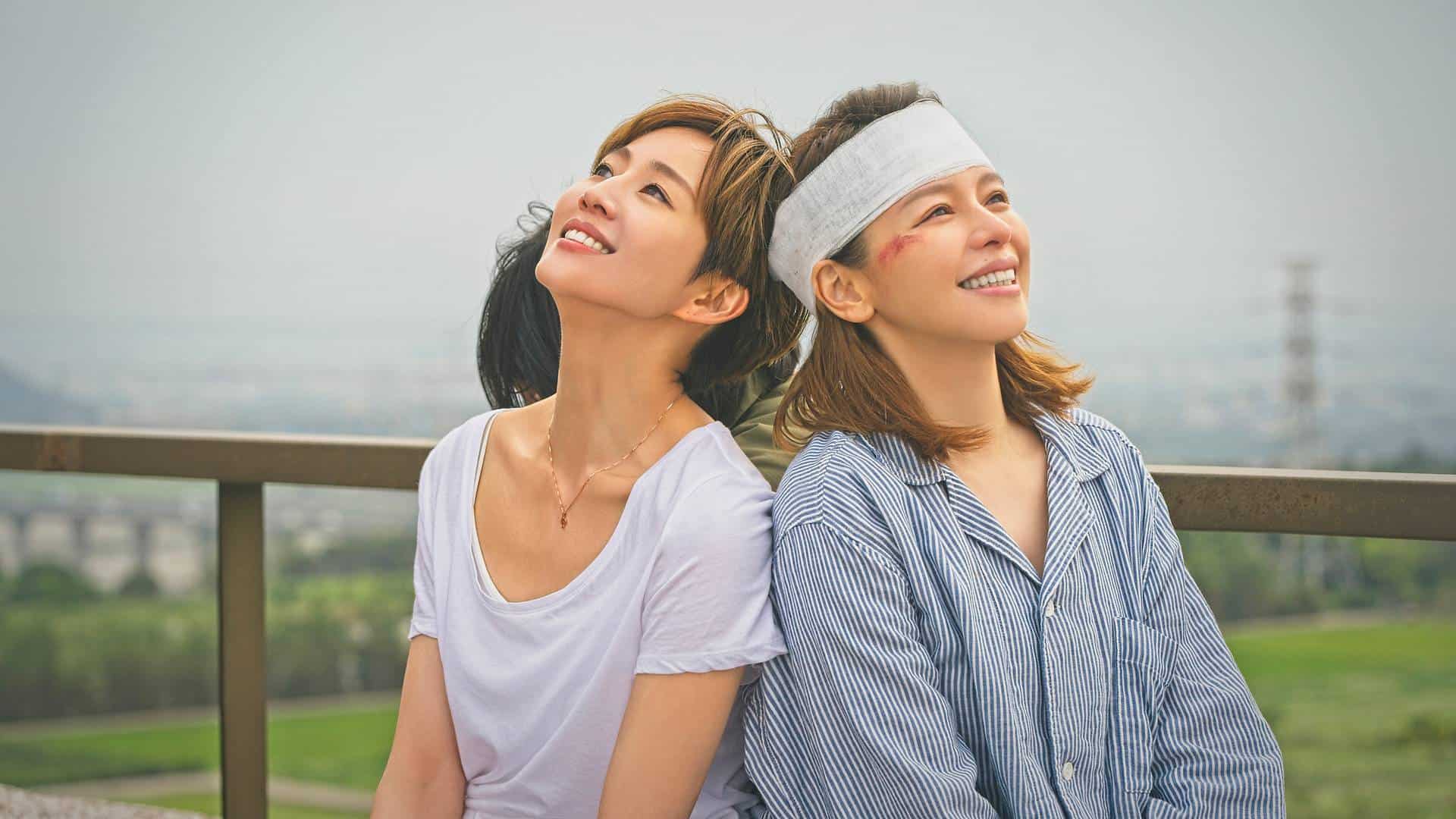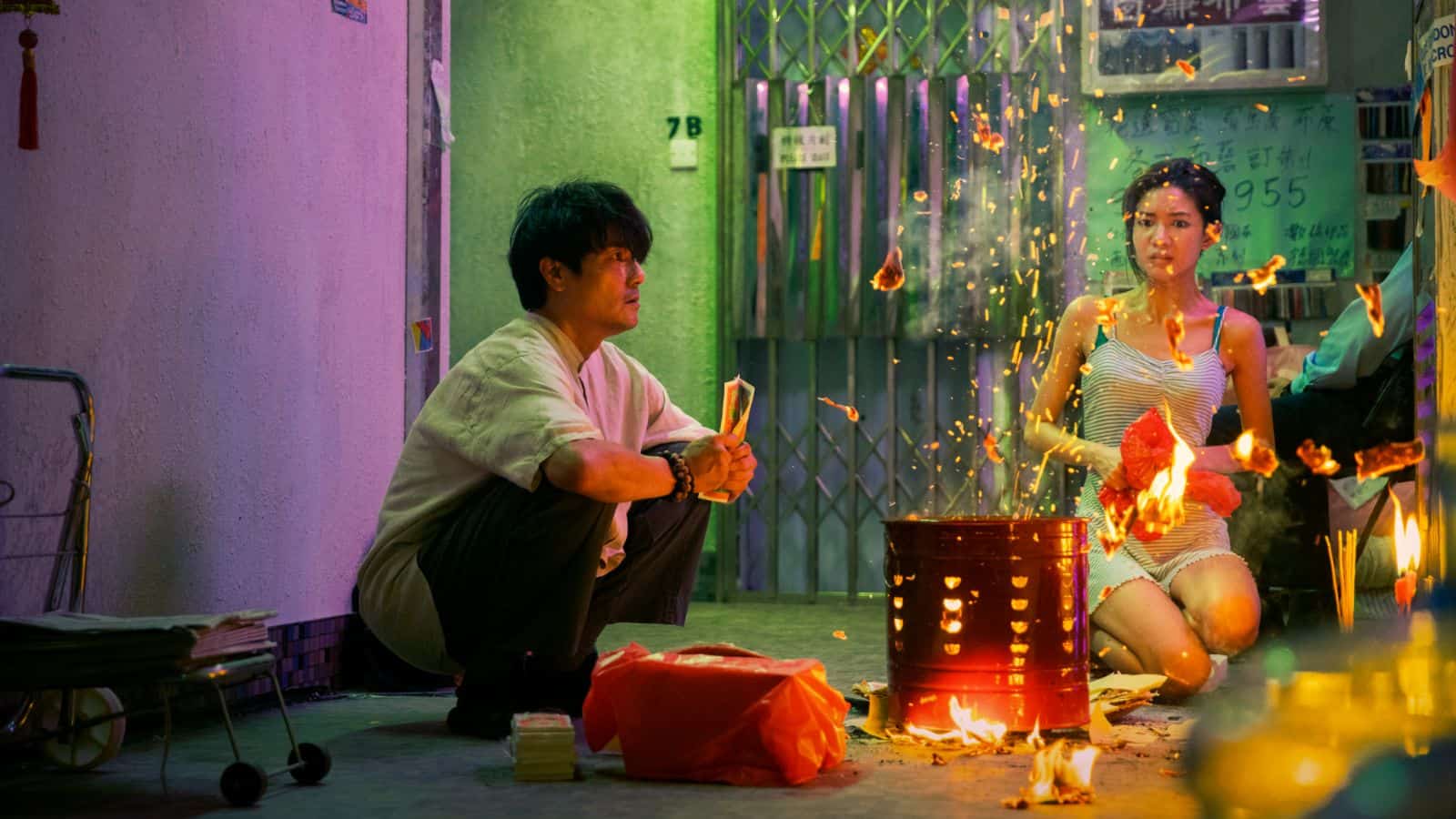Family-centred dramas seem to have become the specialty of director Ryota Nakano since his feature debut “Capturing Dad”. His 2016's film “Her Love Boils Water” earned him a remarkable number of awards and nominations and “A Long Goodbye” was the following work, with a stellar cast. It will be followed in 2020, by another family narration, “The Asadas”, where a real story gives him a vehicle to talk about the dramatic events of the 2011 Tohoku earthquake and tsunami.
A Long Goodbye is screening at Japan Society as part of the Family Portrait program

It's 2007 and Fumi (Yu Aoi) and older sister Mari (Yuko Takeuchi) are summoned by their mum Yoko (Chieko Matsubara) to celebrate the 70th birthday of their father Shohei (Tsutomu Yamazaki), a former headmaster, stern and entirely dedicated to his work. Soon it's clear that the birthday celebration is just an excuse to deliver an uneasy message. Shohei was diagnosed with dementia a few months earlier, the first symptoms are already showing, and things can only get worst. So far, at this early stage, the disease has been manageable, just the occasional forgetfulness, but Shohei, once an avid reader and “kanji master”, is now slowly losing his ability to read a book. Something needs to be done.
The two sisters have long left the paternal house; Fumi is following her dream of opening a restaurant, at the cost of a complicated personal and romantic life, while Mari leaves oversea, in California, and struggles to adapt to a move that has been imposed to her by her biologist husband Shin's (Yukiya Kitamura) career, leaving her in the traditional role of stay-at-home wife and mum of teenager Takashi (Yuito Kamata). They both fly back to their nest (one more literally than the other) when crises strike, to help the mum who is Shohei's sole carer, and the film charts the illness during its slow progression (the titular “long goodbye”), jumping years, from a relevant episode to another. Mari feels guilty as she is not at call distance and must rely on Fumi who is absorbed by her challenging career choice. Shoei, on the other hand, keeps descending in his own mysterious world, often wandering off, always looking for a place he calls “home”, even when he is at home.
With “A Long Goodbye” director Nakano adds another sympathetic family portrait to his body of work. Dementia is a cumbersome presence here, but the film is more about the way the three women deal with it finding strength in their bond, and the way this shaken family unit evolves and adapts in a time of crisis. Mari and Fumi have their own deal of family problems, both incapable to re-enact what they had experienced growing up in an austere yet loving household. They are both trapped; one in a frigid wedlock with an alienated son, the other in an impair competition with the wife and daughter of her divorcee partner.
One of the most thought-provoking concepts of the film is the elusive notion of home. The more Shohei loses his grip with reality, the more he longs for a “home” which doesn't appear to be their family home or either the home where he grew up. We will discover later in the film that for him, home was a special place in time, in his heart. In parallel, Mari is criticized by her husband for saying “going home” when she refers to Japan, as he probably feels their marriage should be her only home. However, candid Shohei reminds us that the concept of home is deeply personal and multifaceted, encompassing both physical and emotional dimensions.
Check the interview with the director
Dementia is certainly a grim subject and a sure vector for tears, however, “A Long Goodbye” manages to be moving and positive at the same time, showing with a touch of humor that it's possible to create new bonds and new channels of communication even when a loved one is drifting away. A couple of scenes are particularly sweet and touching in this regard. In one, Mari on a night video-call from US asks to be left alone with her hospitalised father and lets off steam about her problematic rapport with son Takashi, until she crashes out, all under the eyes of an imperturbable and unaware Shoei on the other side of the screen. In another, a tearful Fumi, just after realizing she will never be able to replace his partners' previous family, has a sweet nonsensical conversation with her dad on the porch of the house, each one of them following their own different stream of consciousness. Did they understand each other? Maybe not, but as Yoko remarks: “It looked like a real conversation”.
Yu Aoi and the late Yuko Takeuchi are wonderful in the role of the two Higashi sisters. They both showcase a remarkable range of emotions, the first through her trademark sweetness, the other with an added comedic and slightly hysterical element. Takeuchi was a bona fide versatile actress; this is one of her last roles and she is sorely missed. But it must be said that the film wouldn't be the same without the great Tsutomu Yamazaki. His portrait of a man whose condition gradually strips him of all the layers of cognitive abilities and competencies, culture and social behaviors, leaving him in a primal limbo, is very captivating and unique as it is infused with sense of humor and the vague awareness of being loved and supported. Despite having only few spoken lines, his exceptional body and facial mimic makes him a commanding presence, showcasing his range and mastery of stage acting.
To conclude, “A Long Goodbye” is a fresh take on how a condition that poses profound challenges and emotional anguish can reshape relationships and redefine the essence of self, but also a meditation on the supportive role the family can have in one's life.


